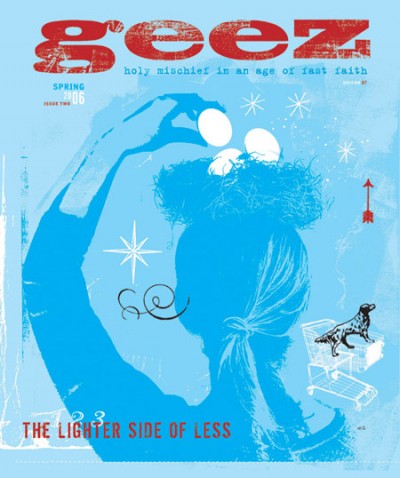The goodness of poverty
Someone will surely point out that asceticism and poverty are not the same; that one is a choice and the other is not. Someone will say you can’t romanticize poverty; you can’t imply that poor people should accept poverty. Poverty is a bad word. So we vilify it – just as progress demands. Because poverty is the opposite of progress.
Asceticism, however, embraces poverty, finding some element of goodness in it. But a distinction must be made here between poverty and dire deprivation. One can embrace poverty without condoning the extreme suffering which no right mind would condone.
It seems awkward to suggest that poverty may not be all bad, yet for many of the spiritual greats, poverty was a good word. Think of Mary, who rejoiced in the fact that God “filled the hungry with good things and sent the rich away empty handed;” or Gandhi, who said, “The poor will teach us the truth, show us God, and share God’s reign with us;” or Jesus, who said, simply, “Blessed are the poor.”
Still, we tend to resist the goodness of poverty. We point out that these greats also fought the exploitation that leads to poverty. Since we too want to fight exploitation, we say poverty is bad. We declare that humanity must leave poverty behind. We’ll all become well-off.
But is it not the consumption of the well-off that fuels exploitation? Is it not the global middle class that is taking far more than its share, and leaving little for the rest? So maybe the answer to extreme poverty is not to vilify the notion of poverty but for the global middle class to embrace it; to become poorer – that is, less exploitative.
Admittedly, all this gets a bit complex – poverty, deprivation, asceticism, exploitation and blessedness. But perhaps we ought to, at minimum, reserve the possibility, paradoxical as it has become, that there may be some goodness in poverty, and that this goodness may help heal a world wounded by disparity.



Sorry, comments are closed.